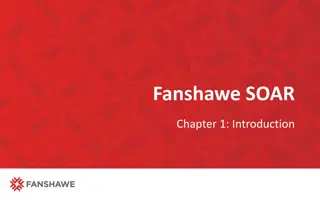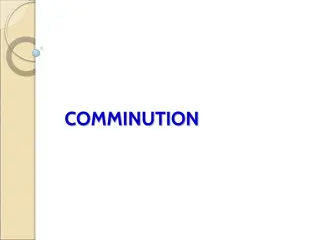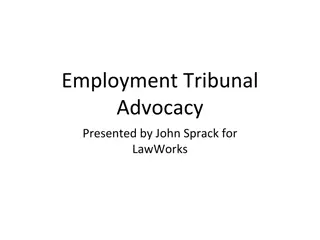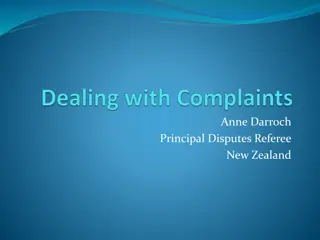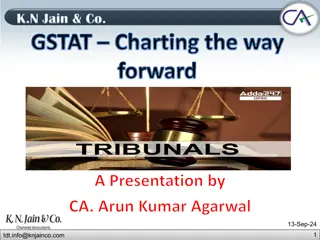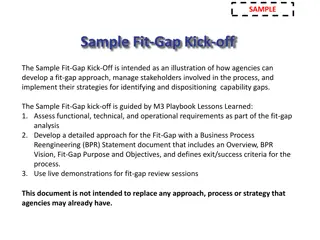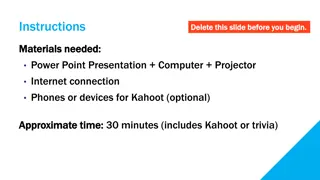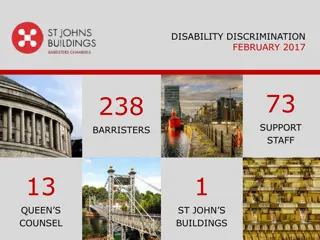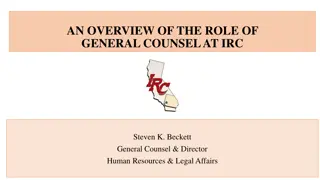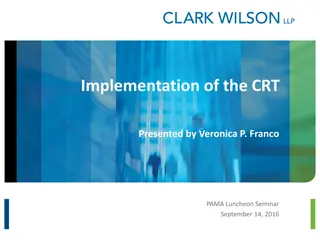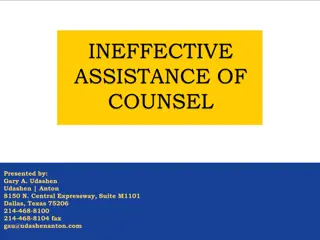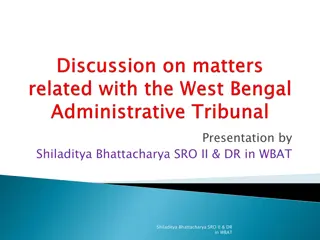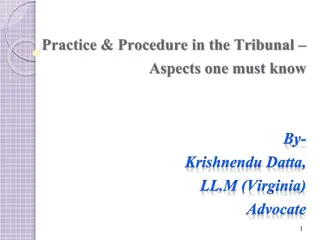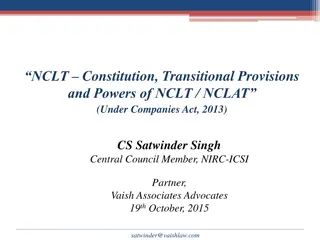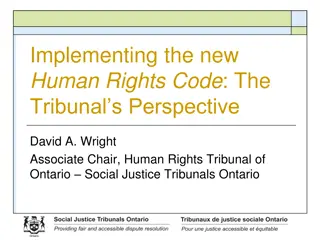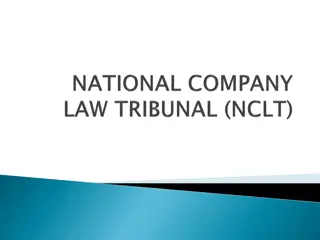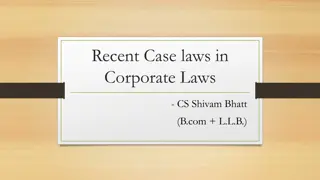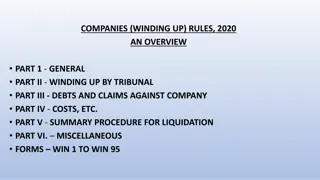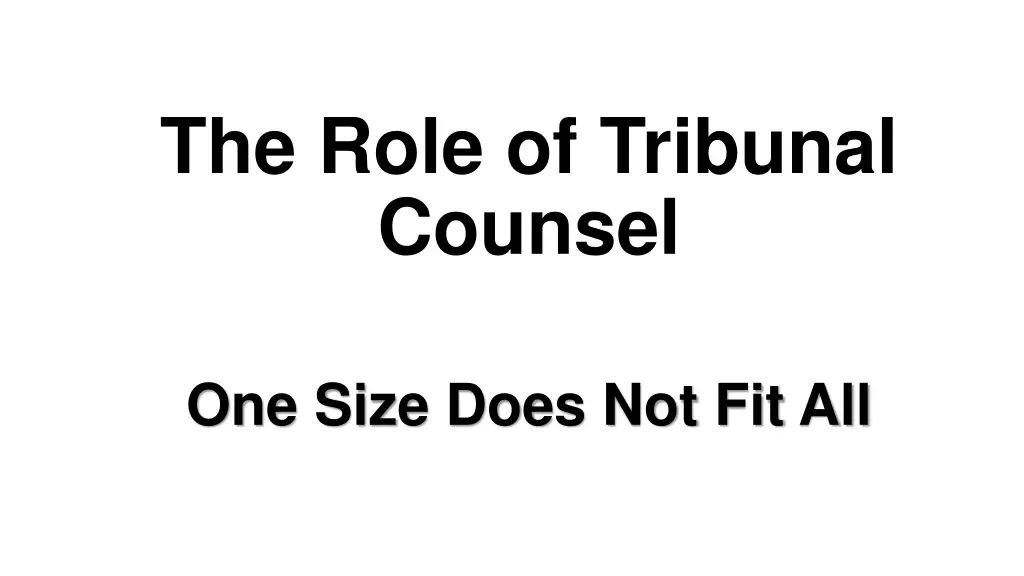
Tribunal Counsel Perspectives
Exploring scenarios involving tribunal counsel responsibilities, decision-making challenges, and ethical dilemmas within the Ontario College of Yoga Instructors. From writing discipline decisions to addressing sexual abuse charges, navigate the complexities of legal counsel in professional settings.
Download Presentation

Please find below an Image/Link to download the presentation.
The content on the website is provided AS IS for your information and personal use only. It may not be sold, licensed, or shared on other websites without obtaining consent from the author. If you encounter any issues during the download, it is possible that the publisher has removed the file from their server.
You are allowed to download the files provided on this website for personal or commercial use, subject to the condition that they are used lawfully. All files are the property of their respective owners.
The content on the website is provided AS IS for your information and personal use only. It may not be sold, licensed, or shared on other websites without obtaining consent from the author.
E N D
Presentation Transcript
The Role of Tribunal Counsel One Size Does Not Fit All
Scenario #1 Scenario #1
Scenario #1 Scenario #1 Facts Facts You are counsel to a new tribunal, the Ontario College of Yoga Instructors (OCYI), established under the Regulated Health Professions Act (RHPA). The members of the Tribunal are yoga instructors, all of whom are highly intelligent, but vary significantly in terms of level of education and written language ability. The Chair is concerned about continuity in decision making. She wants to maintain public confidence in the ability of the OCYI to govern the profession in the public interest. The Chair asks you to write the first draft of all discipline decisions for the consideration and review of the hearing panel in each matter. The hearing panel will give instructions for the decision and it is the panel who will ultimately write the final draft.
Scenario #1 Scenario #1 Questions Questions 1. Are you comfortable with the Chair s request? Why? 2. If you are uncomfortable can you suggest alternatives which will satisfy the Chair s need for continuity and public confidence? 3. If the Chair rejects your suggestions is there advice you ought to give her regarding disclosure of the decision making process?
Scenario #2 Scenario #2
Scenario #2 Scenario #2 Facts Facts Yoga instructor charged with sexual abuse Hearing panel accepts the testimony of the instructor that the student consented to physical contact and the contact was for a proper purpose and not sexual in nature Panel writes a decision finding the instructor was not guilty of professional misconduct Panel member confides that panel was required to submit decision for review by Chair and Chair sent it back suggesting that they were wrong in their assessment.
Scenario #2 Scenario #2 Questions Questions 1. Are your discussions with the member of this hearing panel protected by Solicitor-Client privilege? 2. Do you give her advice? If so, what is your advice? 3. Do you have obligations to the Chair of the Tribunal?
Scenario #3 Scenario #3
Scenario #3 Scenario #3 Facts Facts Owner of yoga studio makes complaint against a former instructor at the studio. Complaint referred to the OCYI s internal Inquiries, Complaints and Reports Committee (ICRC) for consideration. After meeting to consider the complaint, ICRC decides to take no action. Consensus at the meeting was that the complainant s integrity and professionalism were questionable. You take detailed minutes of the discussion which the Chair of the ICRC plans to rely on in writing her decision. The ICRC s reasons for decision were sanitized to remove disparaging remarks about the complainant s integrity, but the complainant requests copy of the minutes of the ICRC deliberations and subsequent email correspondence. Chair of the ICRC seeks your advice on whether to disclose the minutes.
Scenario #3 Scenario #3 Questions Questions 1. What is your advice and what is the basis for it? 2. Would it make a difference if the deliberations were the deliberations of a discipline committee as opposed to the ICRC? 3. Would your advice be different if it was the member requesting the minutes as opposed to the complainant? 4. Does the fact that they are the minutes of Tribunal Counsel make a difference in your advice? For example, if an administrative assistant had taken the minutes, would that change your advice?
Questions? Questions? Comments? Comments?

